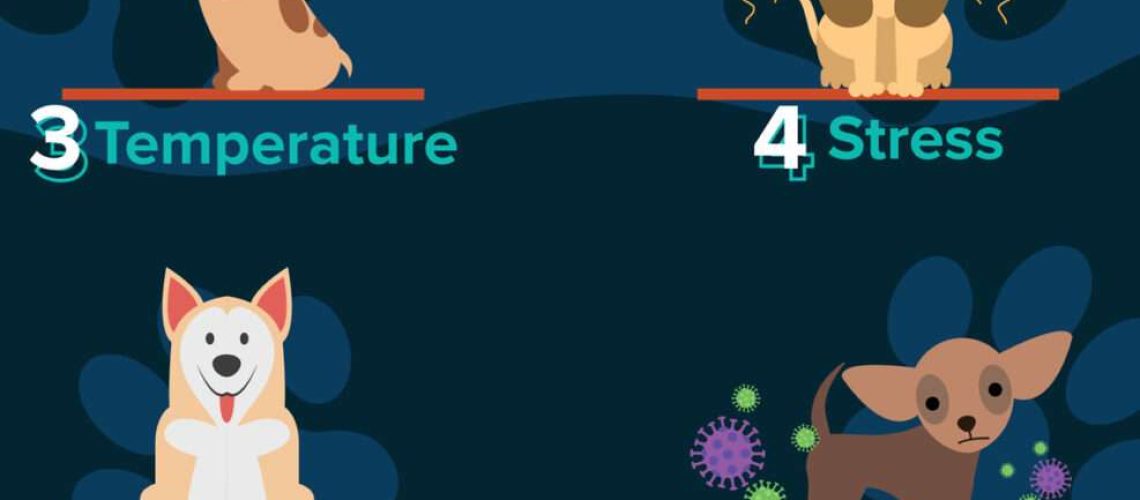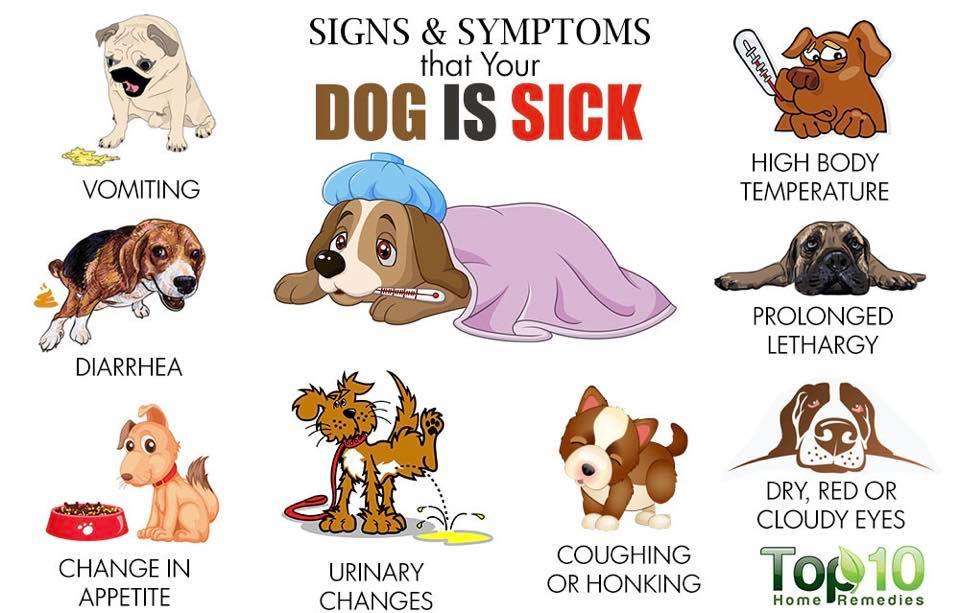Key Takeaways:
- Shaking in dogs can be a sign of excitement or anxiety.
- Medical conditions such as pain, fever, or neurological issues can cause shaking in dogs.
- Exposure to cold temperatures or fear can also make a dog shake.
- If your dog is shaking excessively or showing other concerning symptoms, it's important to consult a veterinarian.
- Oftentimes, addressing the underlying cause of the shaking can help alleviate it and improve your dog's overall well-being.
Are you curious about why your furry friend is shaking? Understanding the reasons behind your dog's trembling can provide valuable insights into their health and well-being. Whether it's a sign of excitement, fear, or something more serious, delving into this subject will empower you to take better care of your beloved pet. In fact, studies show that dogs who receive prompt attention and care for their shaking tend to have a higher quality of life. So, let's explore the six potential reasons why your dog may be shaking and uncover the mysteries behind this common behavior. Get ready to become an expert in decoding your dog's body language!
Why is my dog shaking? Is it normal for dogs to shake sometimes?
It's not uncommon for dogs to shake occasionally, and in most cases, it's completely normal. Dogs have a natural instinct to shake off excess energy or tension. They may also shake when they are excited or happy. So, if your dog shakes every now and then without any other symptoms, there's usually no need to worry.
However, if your dog is shaking excessively or constantly, it could be a sign of an underlying issue that needs attention. It's important to pay attention to any accompanying symptoms or changes in behavior that might indicate discomfort or illness. If you're concerned about your dog's shaking, it's always best to consult with a veterinarian who can provide proper guidance and advice.
Potential reasons why a dog might shake: cold or scared?
Dogs may shake due to various reasons, including feeling cold or scared. Just like humans shiver when they're cold, dogs may also shake as a way to generate body heat and keep warm. If you notice your dog shaking and they seem cold, providing them with a cozy blanket or adjusting the room temperature can help alleviate their discomfort.
On the other hand, fear and anxiety can also cause dogs to shake. When dogs feel scared or threatened, their bodies release stress hormones that can lead to trembling. This is often accompanied by other signs of fear such as cowering, hiding, or excessive panting. If you suspect that your dog is shaking due to fear or anxiety, creating a calm and safe environment for them can help reduce their stress levels.
Telling if my dog's shaking means illness or discomfort: accompanying symptoms to look out for
While occasional shaking is usually harmless in dogs, certain accompanying symptoms may indicate illness or discomfort. It's important to be observant and look out for any changes in your dog's behavior or overall health. Some symptoms that may accompany shaking include:
- Loss of appetite
- Lethargy or decreased activity level
- Vomiting or diarrhea
- Changes in urination (frequency, color, odor)
- Difficulty breathing
- Lameness or limping
If you notice any of these symptoms alongside your dog's shaking, it's advisable to consult with a veterinarian. They will be able to evaluate your dog's condition and determine if there is an underlying medical issue that requires treatment.
Can anxiety or stress cause a dog to shake? Ways to calm a shaking dog down
Anxiety and stress can indeed cause dogs to shake. Just like humans, dogs can experience feelings of unease and tension that manifest as physical symptoms, including trembling. If your dog is shaking due to anxiety or stress, there are several ways you can help calm them down:
- Create a safe space: Provide your dog with a quiet and comfortable area where they can retreat when they feel anxious. This could be a crate or a designated corner with their bed and favorite toys.
- Use calming techniques: Try using soothing music or white noise machines to create a calming environment for your dog. Additionally, gentle massages or applying pressure on certain points of their body can help relieve anxiety.
- Establish routines: Dogs thrive on routine and predictability. Establishing regular feeding times, walks, and play sessions can help reduce their overall stress levels.
- Consider professional help: If your dog's anxiety is severe or persistent, it may be beneficial to seek assistance from a professional dog trainer or behaviorist who can provide specialized guidance and techniques.
Medical conditions that make a dog shake: epilepsy, low blood sugar. Diagnosis and treatment
There are certain medical conditions that can cause dogs to shake. Two common examples are epilepsy and low blood sugar (hypoglycemia).
Epilepsy is a neurological disorder characterized by recurrent seizures. Seizures in dogs can manifest as shaking or tremors, along with other symptoms such as loss of consciousness or muscle spasms. If your dog experiences seizures, it's crucial to consult with a veterinarian for proper diagnosis and treatment options. Medications may be prescribed to manage the condition and reduce the frequency and intensity of seizures.
Low blood sugar, often seen in small breed puppies, can also lead to shaking episodes. This condition typically occurs when a dog hasn't eaten for an extended period or has an underlying health issue affecting their blood sugar levels. Feeding your dog small frequent meals throughout the day and ensuring they have access to fresh water can help stabilize their blood sugar levels. However, if you suspect your dog has low blood sugar, it's essential to seek veterinary care for proper diagnosis and treatment.
Is my dog's shaking just excitement or something concerning? Differentiating between normal excitement and more
Dogs often express their excitement through various behaviors, including shaking. If your dog shakes when they're excited, such as before a walk or when you return home after being away, it's generally considered normal behavior.
However, it's important to differentiate between normal excitement-induced shaking and potential signs of distress or discomfort. If your dog's shaking is accompanied by any of the following symptoms, it may indicate something more concerning:
- Excessive drooling
- Pacing or restlessness
- Excessive panting or difficulty breathing
- Aggression or fear-based behaviors
If you notice any of these additional symptoms, it's advisable to consult with a veterinarian to rule out any underlying issues and ensure your dog's well-being.
In conclusion, there are several potential reasons why a dog may shake. It could be due to fear or anxiety, feeling cold, being in pain, having a medical condition, experiencing excitement, or simply because it's a natural behavior for some dogs.
Why is my dog shaking uncontrollably for no reason?
Similar to humans, dogs have the ability to shake or tremble when they are afraid. However, there are various other reasons why your dog may be shaking. It could indicate that your dog is experiencing pain, has low blood sugar, or is suffering from a medical condition such as a neurological disease.
What toxins cause tremors in dogs?
In dogs, shaking can be worsened by physical contact or loud noises, and can also be caused by intentional shaking, increased sensitivity, rapid heartbeat, and seizures. Possible reasons for these symptoms could include ingesting poisons like strychnine or plant toxins, as well as exposure to pesticides, certain chemicals, drugs, or illicit substances.
Can stress cause a dog to shake?
Dogs can experience fear and stress, just like humans, and may tremble when they are scared. There are common causes for this, such as fireworks or a sudden car backfiring. Additionally, some dogs may simply be afraid of new situations, people, or places.
Are tremors in dogs life threatening?
If left untreated, tremors can advance to seizures, which can lead to serious complications such as hyperthermia caused by muscle activity and secondary clotting abnormalities known as disseminated intravascular coagulation (DIC).
What are the signs of poisoning in a dog?
If you observe any of the following symptoms in your dog, such as excessive saliva, lack of energy, tremors or strange movements, digestive discomfort, abnormal swelling, pale gums, or changes in behavior, it is important to contact your veterinarian right away. This is especially crucial if you believe that your dog may have consumed something toxic.
How do I know if my dog is poisoned?
According to Wismer, the typical symptoms of poisoning from plants include vomiting, diarrhea, depression, and seizures. In more serious cases, ingestion of toxic plants can result in liver failure, kidney failure, and cardiovascular issues.

















